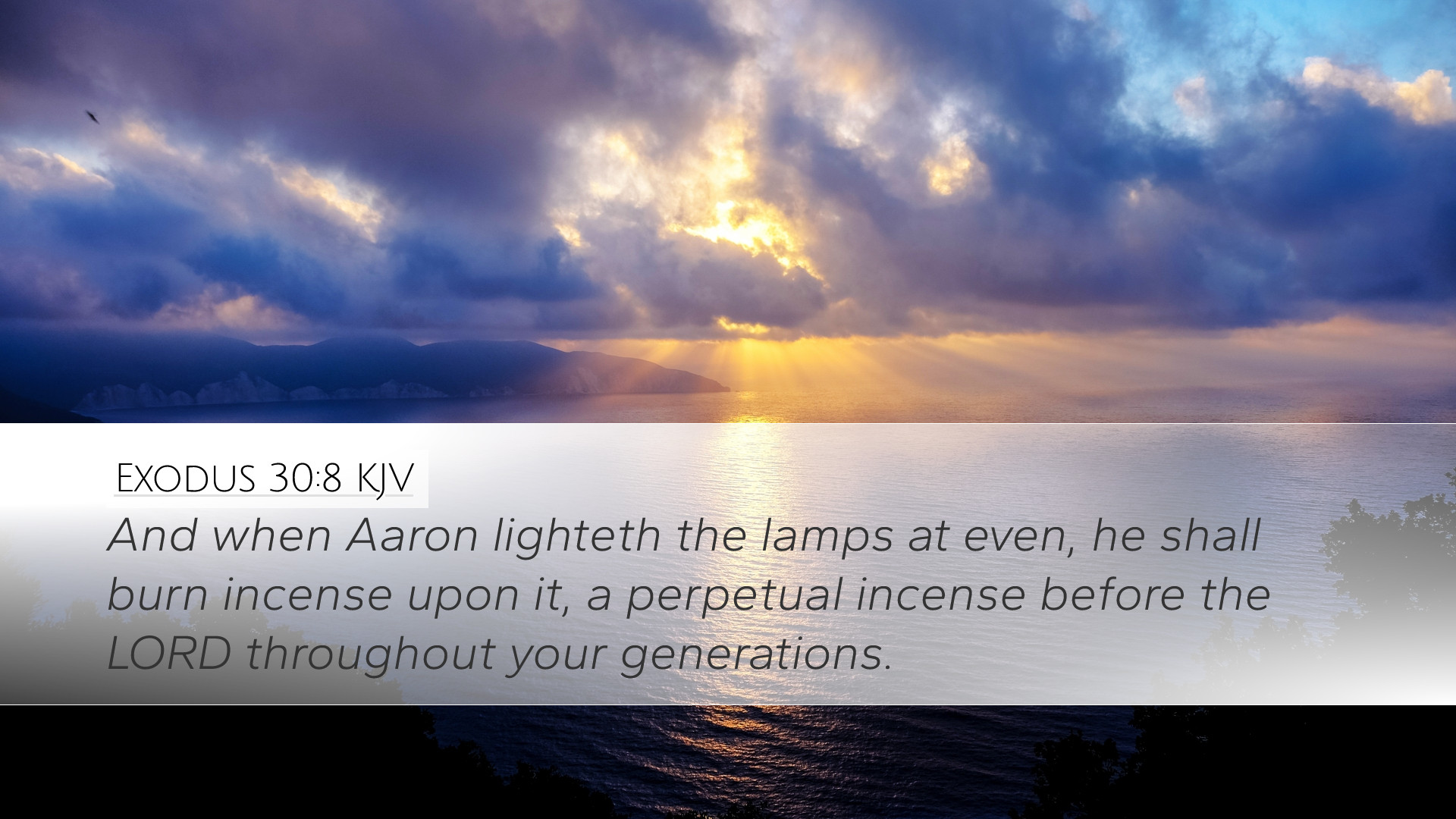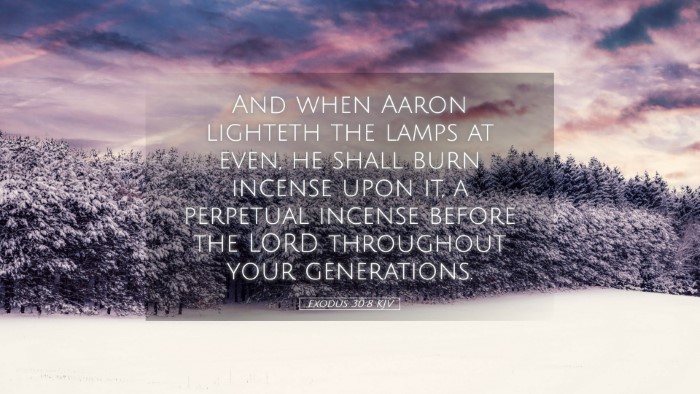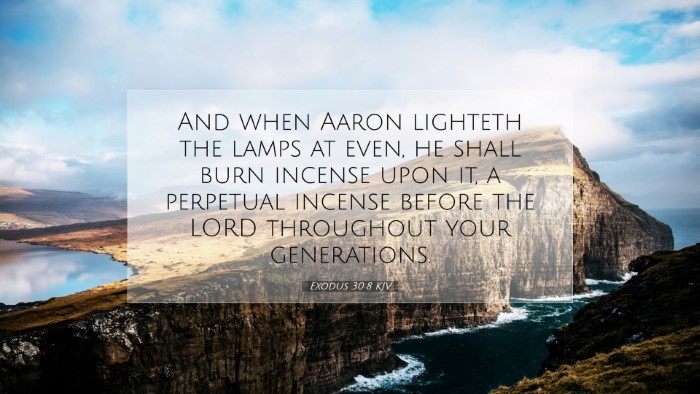Commentary on Exodus 30:8
Exodus 30:8 states, "And when Aaron lights the lamps at twilight, he shall burn incense on it; a perpetual incense before the Lord throughout your generations." This command is part of a larger framework concerning the worship practices established by God for the Israelites in the Tabernacle. This commentary seeks to explore the theological and practical implications of this verse by synthesizing insights from various public domain commentaries.
The Significance of the Lamps
Matthew Henry notes that the act of lighting the lamps has both physical and spiritual significance. The lighting of the lamps signifies the presence of divine light amidst His people. The lamps were to illuminate the sanctuary, symbolizing God’s guidance and truth. In the New Testament, Jesus declares, "I am the light of the world" (John 8:12), fulfilling the symbol of illumination from the Old Testament.
The Role of Aaron in Worship
According to Albert Barnes, Aaron is specifically commanded to light the lamps and burn incense, emphasizing the priestly role he occupies. As a high priest, Aaron becomes a mediator between God and the people. The continual lighting of the lamps at twilight can be seen as a reminder of the ongoing need for God’s presence and enlightenment. Barnes points out that this action of Aaron is laden with symbolism; twilight, as a transitional time, signifies the movement from day to night, paralleling the transition from the old covenant to the new covenant in Christ.
The Incense and Its Perpetuity
Adam Clarke elaborates on the incense being burned "perpetually" before the Lord. Incense in biblical terms often represents prayer, and thus, this practice symbolizes the continuous nature of prayer and worship that should be lifted to God from His people. Clarke draws attention to the fact that this practice establishes a ritual of devotion that is meant to endure through generations, indicating the importance of establishing consistent practices of worship and communion with God within the community of believers.
Theological Implications
This verse encapsulates numerous theological principles, including:
- The Priesthood of Believers: The ministry conducted by Aaron foreshadows the priesthood established in Christ Jesus. Believers today are called to be a royal priesthood (1 Peter 2:9), taking on the responsibility of sustaining communal worship.
- The Importance of Worship: The continual nature of the incense represented in this verse highlights the necessity of persistent worship and prayer in a believer's life. Just as Aaron tended to the lamps, Christians are called to fuel the fire of worship in their hearts.
- The Mediation of Christ: Just as Aaron mediated between God and Israel, Christ is our ultimate mediator (Hebrews 9:15). The ongoing burning of incense symbolizes His intercession before the Father on behalf of humanity.
Applications for Pastors and Scholars
For pastors and theologians, this verse provides rich material for both worship planning and theological reflection:
- Prioritize Prayer: The continuous burning of incense serves as a reminder to prioritize prayer in personal ministry and communal worship settings. This dedication to prayer is reflected in a pastor's leadership.
- Model Mediation: Just as Aaron carried out the delicate task of maintaining the worship procedures, pastors and church leaders are called to be mediators between God and their congregations, fostering environments where worship thrives.
- Teach on Light and Darkness: Considering the symbolism of light, pastors can preach on how God’s light dispels darkness, encouraging believers to be bearers of light in the world—much like the lamps in the sanctuary.
Conclusion
Exodus 30:8 encompasses vital lessons on worship, mediation, and the sustaining presence of God in the lives of His people. As Aaron lights the lamps and burns incense, believers today are reminded of their role in continuous worship and the necessity of God’s presence. Scholars and pastors alike can draw from the rich symbolism found in this verse, integrating these truths into their preaching, teaching, and personal devotion.


